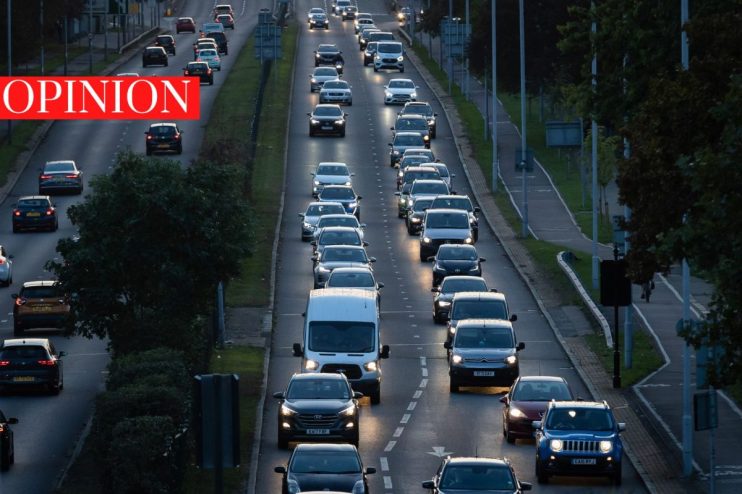There isn’t really a war on motorists, but maybe there should be

For thirteen years, the government has refused to scrap fuel duty. Now’s the time, writes Ben Ramanauskas.
I love this time of year. As the temperature drops and the leaves start to fall we get all of the best traditions such as Halloween parties, Bonfire Night, and the excitement of the start of the festive season. There is another tradition which does not spark joy. Every year in the run up to the Autumn Statement there will be a leak from the Treasury that the Chancellor is going to unfreeze fuel duty. This year was no different with reports that Jeremy Hunt intends to do it in November.
However, as it is now traditional for the Treasury to leak that it will be unfreezing fuel duty, it is also now the custom of whoever is Chancellor to keep the freeze. The reason it is leaked is so that the Chancellor can announce that they never had any intention of doing so in the first place as the government is on the side of drivers. Given that Rishi Sunak has claimed that he wants to “end the war on motorists”, it is almost certain that this year will be no exception.
This is disappointing: fuel duty has been frozen for the past 13 years meaning that its value has decreased in real terms. This is problematic for a number of reasons.
First, it undermines the government’s fiscal credibility. The Office for Budget Responsibility’s’s forecasts assume that fuel duty will rise in line with inflation and so takes this into account when it considers how much the government has to spend or will need to borrow. The fact that it is frozen means that the government has less money to spend and will need to borrow more to meet its commitments.
This brings us onto the second point. Freezing fuel duty means that the Treasury is missing out on a significant amount of revenue. This is money which could be spent on essential public services and invested in improving public transport.
This leads to the final problem, namely the costs imposed on others by motorists. Driving a car causes pollution and congestion and these negative externalities damage our health and our planet while also hampering productivity as people are forced to take longer, more stressful journeys.
All these points are related. That fuel duty has been subsidised for the past 13 years represents a subsidy to motorists at our expense. It imposes costs on the public, worsens public transport, and shifts the burden onto future generations to pay off the debt.
I am fortunate to live in London where the public transport is excellent but this is not the case in the rest of the country. I have sympathy for motorists who are reliant on their cars. However, the reason why this is the case is a failure to invest in public transport and so keeping the freeze on fuel duty only compounds this.
It is only right that this year we finally buck the trend and bring fuel duty rises in line with inflation and the revenue used to invest in public transport around the country.
We also need to be looking to the future. As electric vehicles become more popular and replace petrol and diesel cars we will see revenue from fuel duty drastically reduce which would exacerbate many of the issues highlighted in this piece.
The Chancellor should phase out fuel duty and other morotist taxes and replace them with road pricing. Such a model has worked in various places around the world such as Milan, Singapore, Hong Kong, Stockholm, and Gothenburg. It would lead to quicker and more pleasant journeys for road users and the revenue raised should be used to improve public transport.
